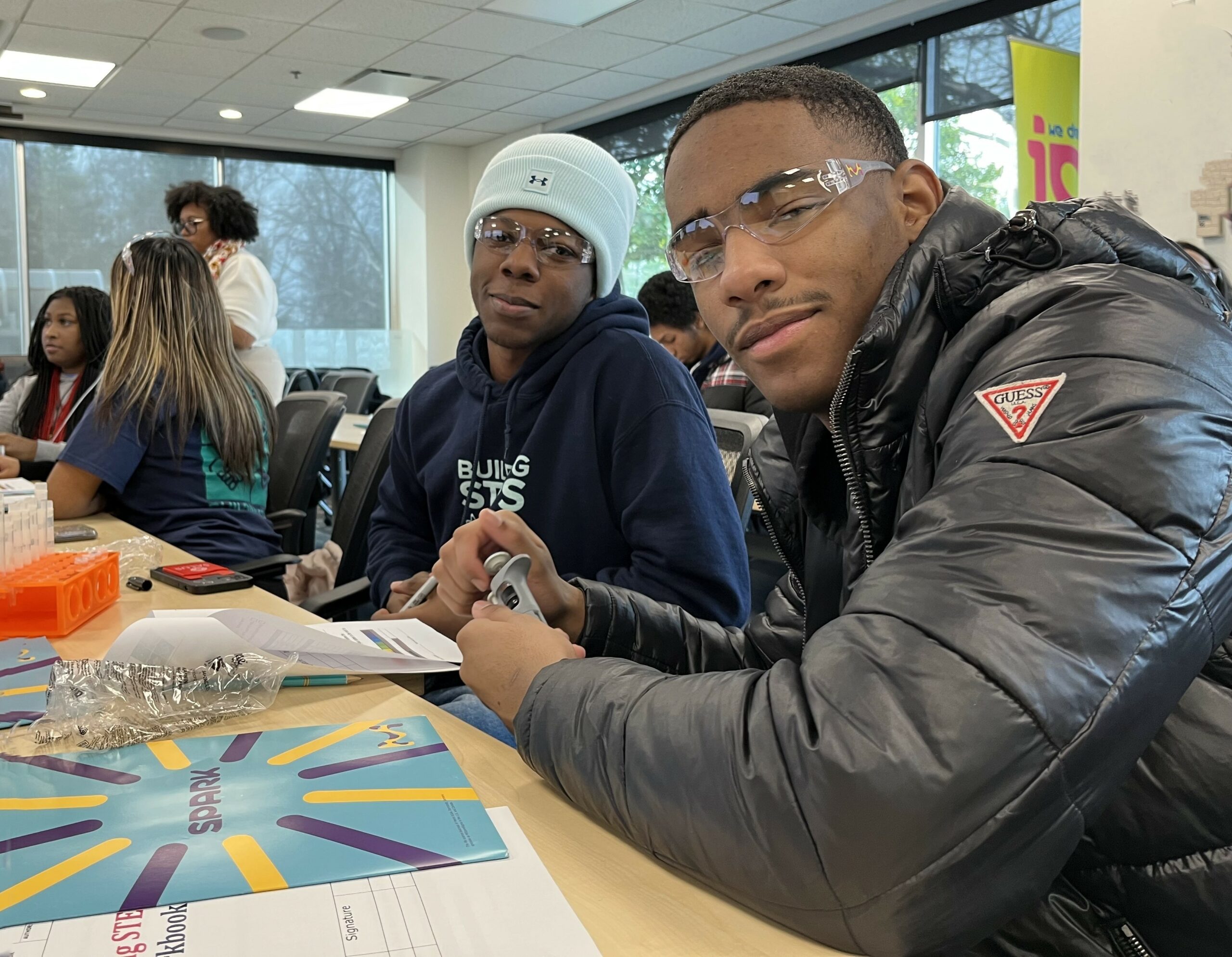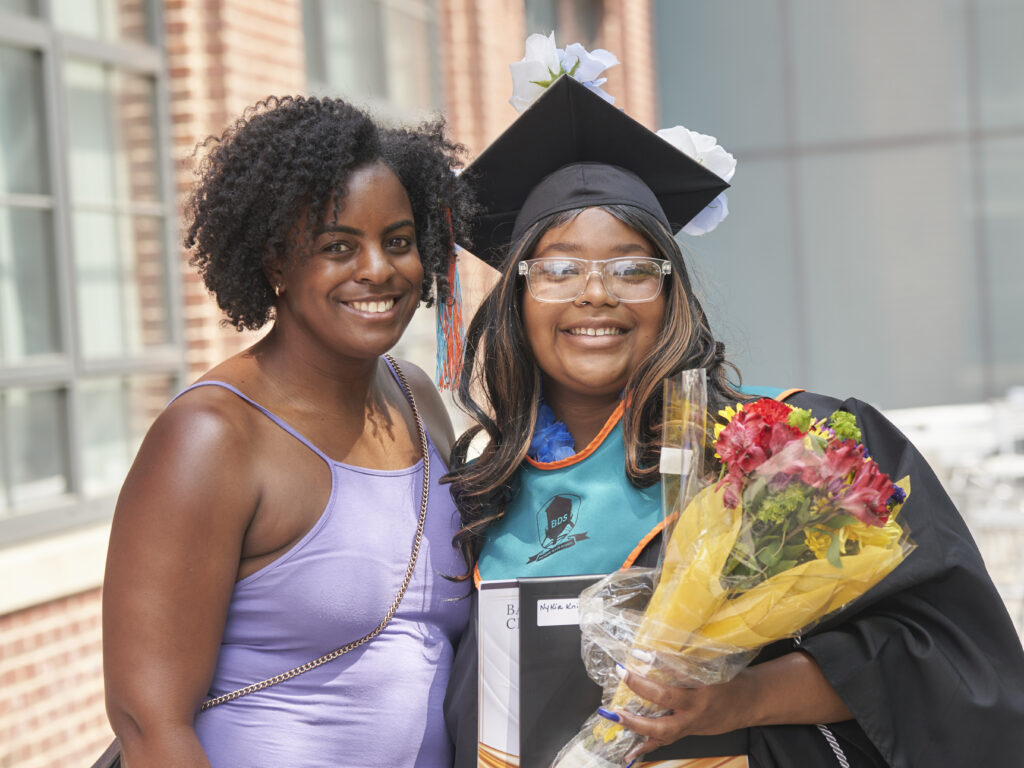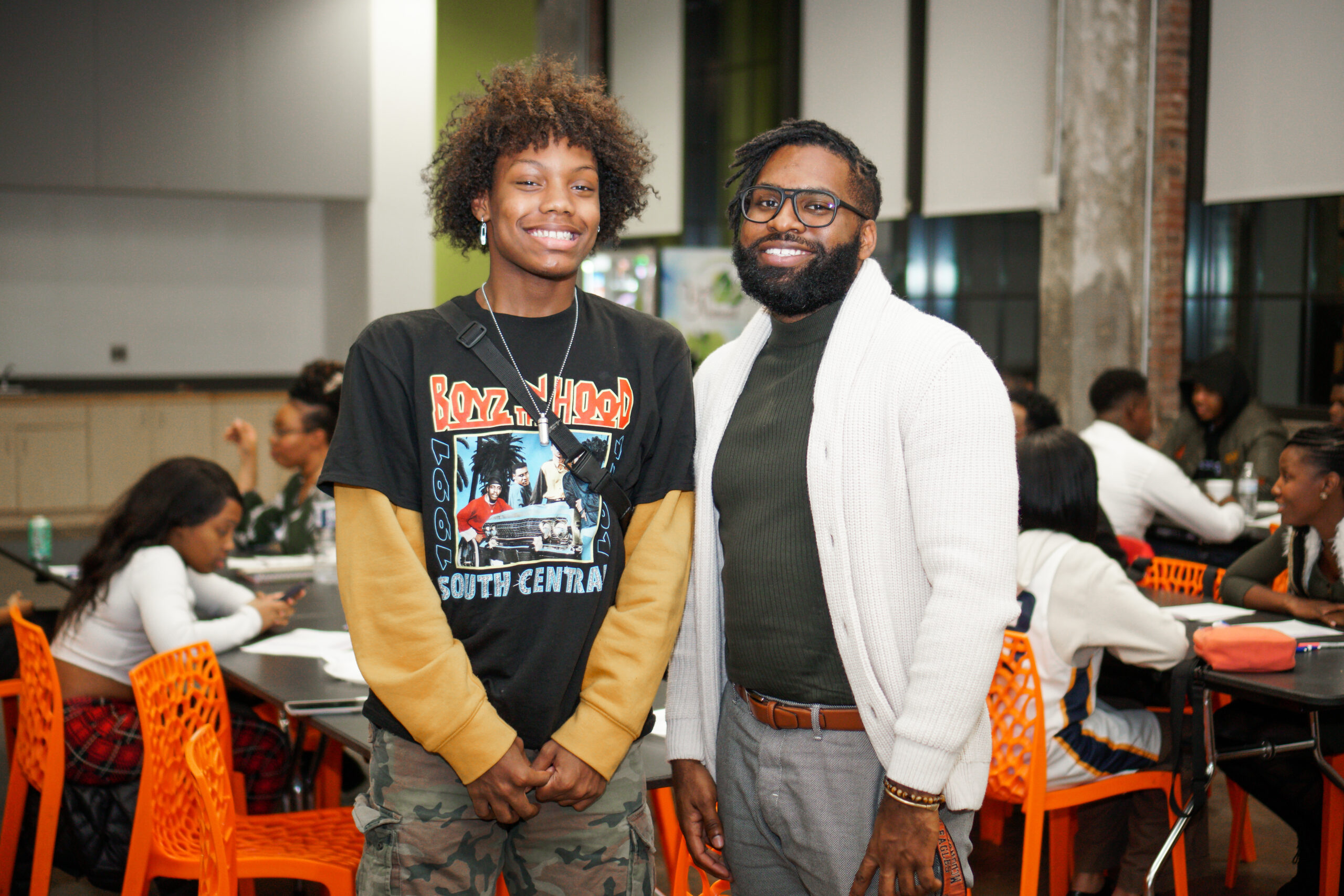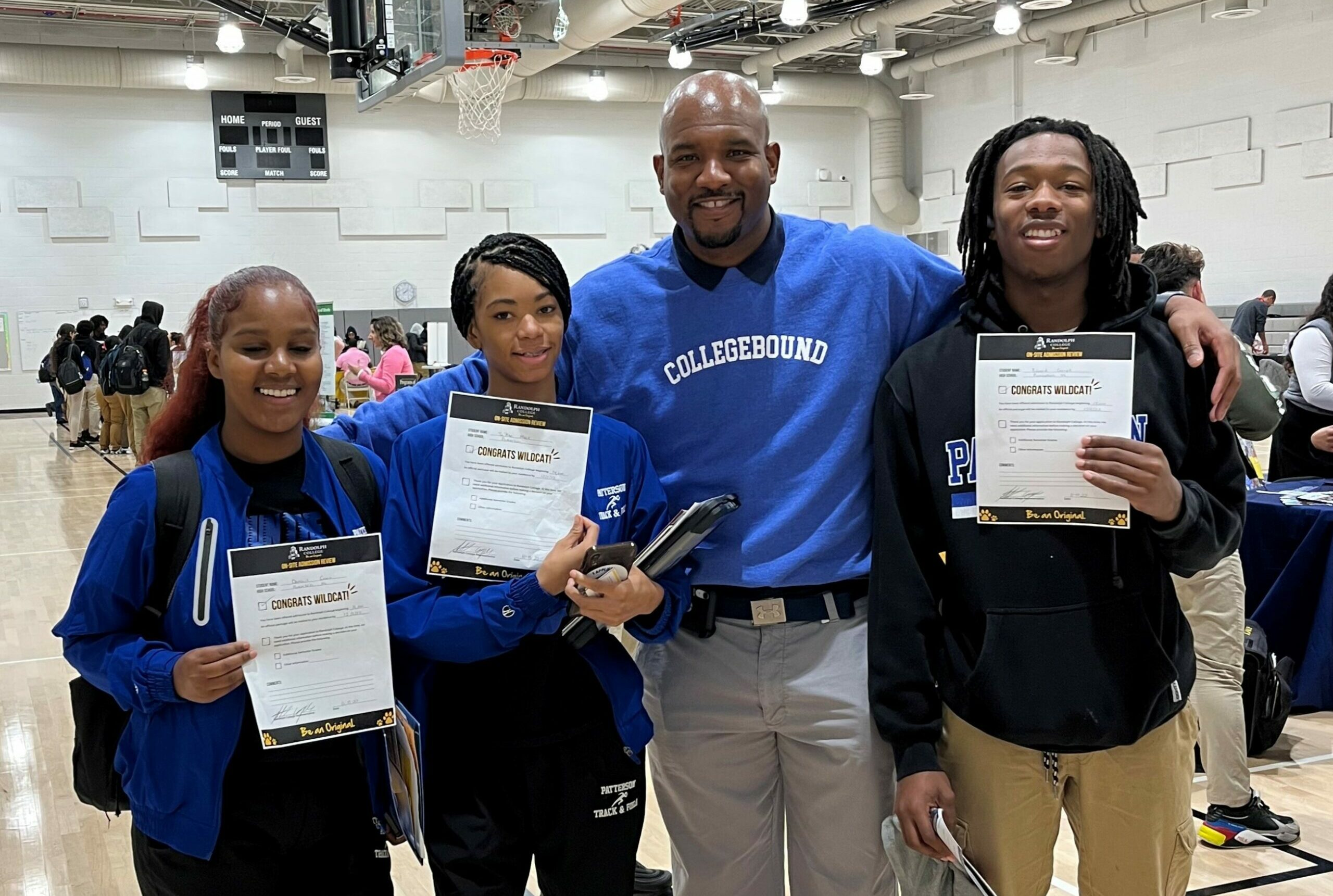About 4,000 students graduate from the Baltimore City Public Schools System (City Schools) each year, and approximately half of them matriculate to a two- or four-year college. Unfortunately, only 9% of students who begin ninth grade in City Schools graduate from a four-year or a two-year college within six years of completing high school (2020 Baltimore Education Research Consortium College Factbook).
Abell Foundation grantees are working to improve college outcomes for City Schools students. Not only do these organizations work to increase college application and acceptance rates, but they also support persistence initiatives to ensure enrolled college students graduate, ultimately increasing the quality and quantity of professional opportunities available to Baltimore’s young people. These grantees include:
- iMentor Baltimore
- CollegeBound Foundation
- Building STEPS
- University System of Maryland – NEXUS Research Project
iMentor Baltimore
Launched in 2019, iMentor Baltimore focuses on increasing college acceptance rates at two high schools – Baltimore Design School and the Academy for College and Career Exploration. The program matches each eligible 11th and 12th-grade student with a volunteer mentor. During the school day, students participate in weekly college preparation and career access classes facilitated
by an iMentor school-based program manager and develop individualized post-secondary pathway plans. In the most recent 2021 cohort, 41% of iMentor students enrolled in a four-year college, 18% enrolled in a two-year college, 5% enrolled in a certificate or vocational program, and 30% went directly into the workforce.
College acceptance rates for iMentor Baltimore students were 61% at the Academy for College and Career Exploration, compared to a historical average of 24%, and 96% at Baltimore Design School, compared to a historical average of 69%.
CollegeBound Foundation
Founded in 1988 to address the need for an educated workforce in Baltimore City, the CollegeBound Foundation helps Baltimore City Public Schools students succeed in postsecondary education. CollegeBound employs and trains more than 20 college advisors who provide on-site, year-round support at 19 high schools, and it offers need-based scholarships, advising, and mentoring to students to persist through college. With a grant from the Abell Foundation, CollegeBound established the College Completion Program (CCP) in 2016. CCP fills the through-college support gap with ongoing mentoring, academic support, financial counseling, and the allocation of stopgap resources. CCP has yielded impressive results, including an 83% overall retention rate for program participants and a 75% on-track-for-graduation rate.
In 2022, Abell provided seed funding to establish CollegeBound’s Finishers’ Fund, which helps upperclassmen and near-completers who require additional funding to graduate after losing financial aid or facing family financial hardship. In its first year, eight students received support from the Finishers’ Fund, with an average award of $2,100. All eight of these students went on to complete their college degrees.
“It’s not enough that more City Schools graduates get into college — we need to help make sure they get through college and obtain their degrees. That’s what’s going to make the biggest difference in their lives and in our community.”
– Alicia Wilson, CollegeBound Foundation Board Chair

Building STEPS
Since 2000, Building STEPS has grown from serving 16 students at three schools to serving 180 students at 15 Baltimore City high schools, as well as 245 college students and nearly 100 college alumni. Building STEPS provides college readiness supports, including a summer experience, college visits, STEM seminars, individual advising, and scholarship support to students who maintain at least a 3.0 grade point average. Through the mentorship and guidance of the Building STEPS team, nearly 65% of participating students earn a college degree within six years. A 2019 economic analysis of 80 Building STEPS college graduates living in Maryland found that earnings averaged $65,185 per graduate (Regional Economic Studies Institute).
University System of Maryland – NEXUS Research Project
The University System of Maryland (USM) comprises 12 public higher education institutions and three regional higher education centers. With a total student population exceeding 170,000, USM accounts for more than 70% of all students enrolled in a four-year university in Maryland. Abell funded the Nurturing Excellence for Undergraduate Success (NEXUS) research project to address two related questions: 1) what steps can be taken to increase retention and graduation rates for Baltimore City Public Schools students at USM institutions, and 2) how can we improve college readiness for more Maryland students?
NEXUS is using current and retrospective data to identify best practices to support City Schools students at risk of dropping out of USM institutions. Based on their research, teams at each USM institution will begin piloting university-level projects alongside their partners at City Schools with the goal of improving student enrollment, retention, and graduation rates.
Photos courtesy of iMentor Baltimore, CollegeBound Foundation, and Building STEPS.


